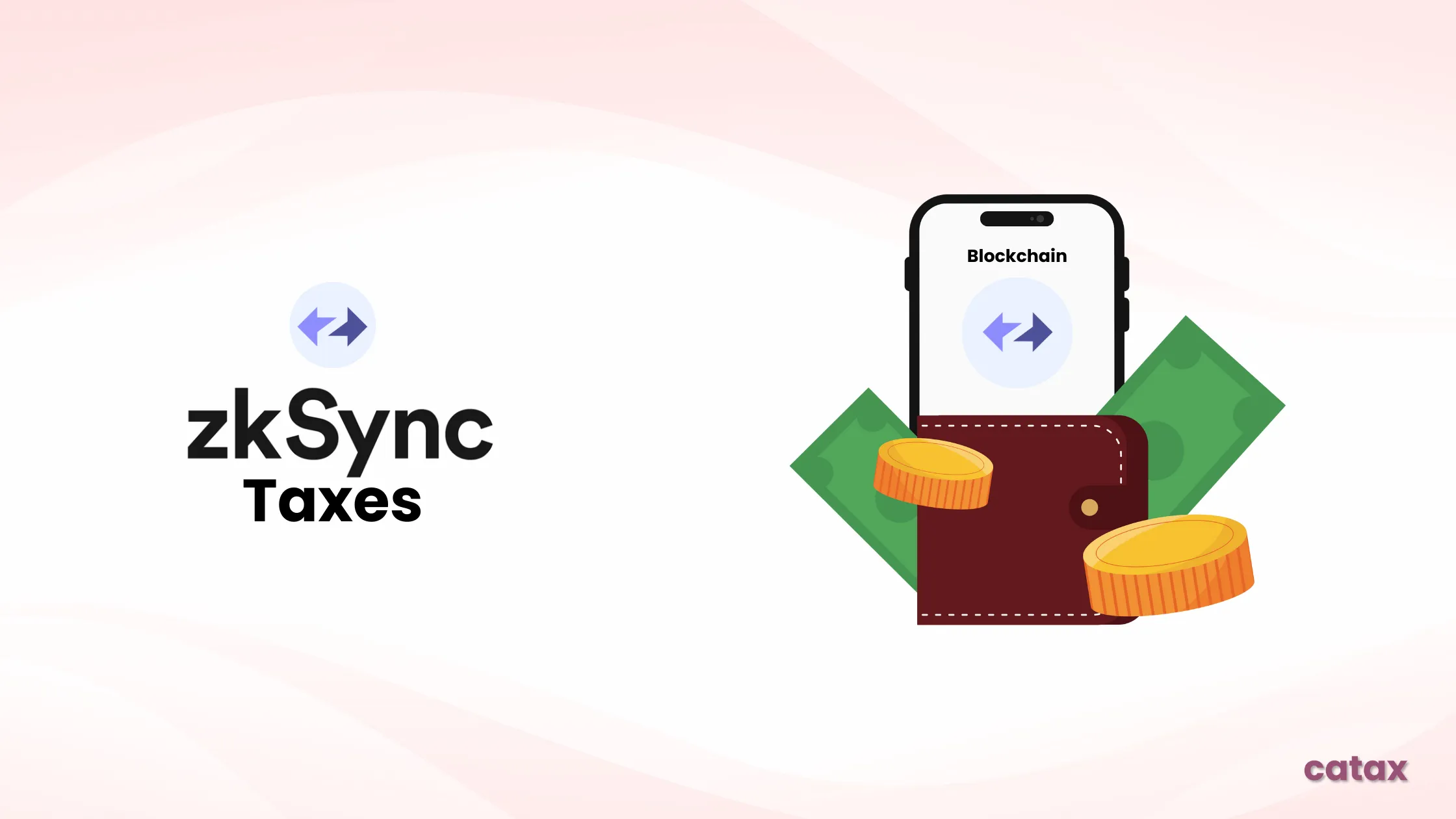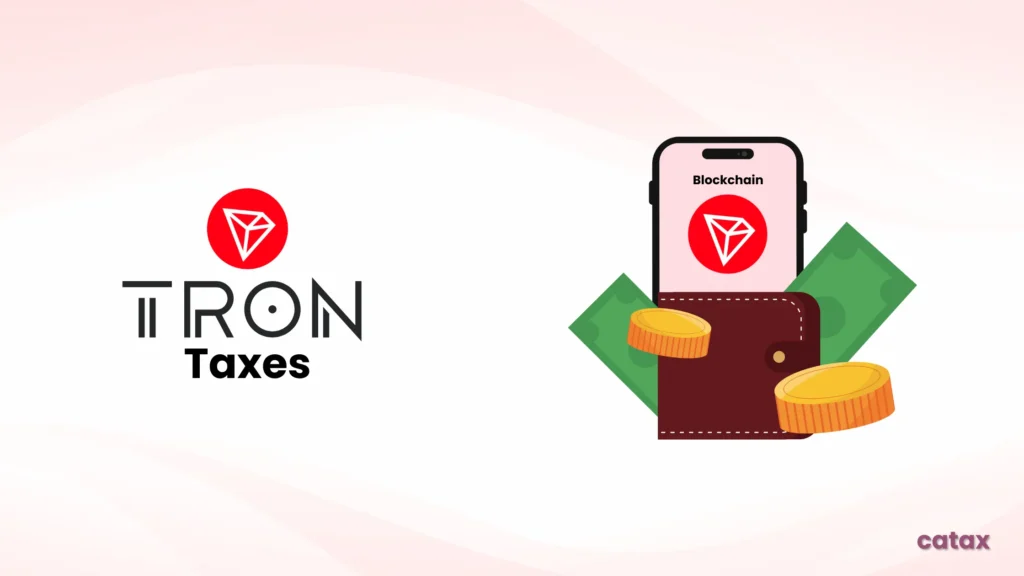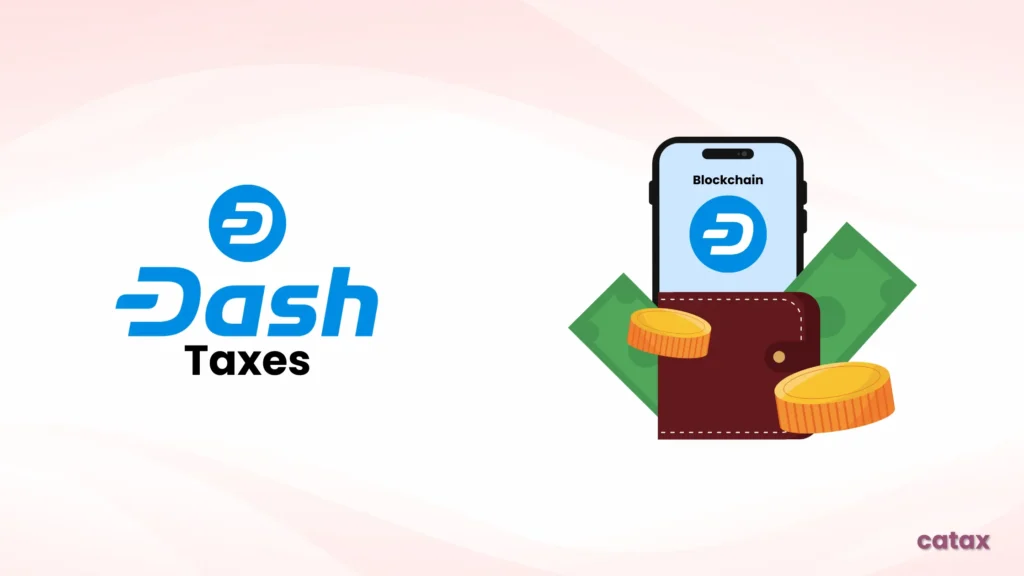Cryptocurrency tax laws differ from country to country, and ZkSync (ZK) transactions may be taxed based on local regulations. If you buy, sell, trade, or stake ZK, it is essential to understand how tax authorities classify these activities and what your tax responsibilities are.
This guide explains ZkSync tax rules in simple words, making it easier for you to stay compliant and manage your crypto taxes efficiently.

How to Connect Your ZkSync Wallet to Catax
Tracking your ZkSync (ZK) transactions and calculating taxes can be easier when you connect your wallet to Catax. Follow these simple steps to connect your ZkSync wallet:
- Open your ZkSync wallet or use a block explorer (such as MetaMask, Trust Wallet, Ledger, or another supported wallet).
- Find and copy your public wallet address.
On Catax:
- Log in and select your country.
- Select Chain, then search for ZkSync Wallet.
- Paste your wallet address and click Connect.
Once connected, Catax will automatically track your ZK transactions, making tax calculations much simpler.
Calculate My Taxes ➤Are ZkSync (ZK) Transactions Taxable?
Yes, in most countries, ZkSync transactions are taxable. Governments classify ZK as property, income, or a capital asset, depending on how it is used.
When Do You Have to Pay Taxes on ZkSync?
You may owe taxes when you:
- Sell ZK for a profit – If you sell ZkSync for more than what you paid, the profit is subject to capital gains tax.
- Trade ZK for another cryptocurrency – Exchanging ZkSync for Bitcoin, Ethereum, or any other crypto may be considered a taxable event.
- Use ZK for purchases – If you spend ZkSync on goods or services, and its value has increased since you bought it, you may owe capital gains tax.
- Earn ZK from staking – Many countries tax staking rewards as income at the time you receive them.
- Receive ZK as payment – If you get paid in ZkSync for work or services, it is usually considered taxable income based on its market value at the time of receipt.
Since crypto tax rules differ by country, it is important to check how your local authorities treat ZkSync transactions.
Can You Deduct Trading Fees and Other Costs?
Many ZkSync traders and investors wonder if they can deduct trading fees, transaction fees, and security costs from their taxable income. The answer depends on local tax regulations.
Some countries allow deductions for:
- Trading fees when buying or selling ZK.
- Transaction (network) fees for sending ZK between wallets.
- Security costs, such as hardware wallets, private key storage, and multi-signature protection.
Other countries only allow deductions for:
- The cost of acquiring ZkSync, meaning you can subtract the purchase price from your taxable income, but cannot deduct exchange or transfer fees.
Checking your country’s tax laws will help you understand what deductions apply and ensure accurate tax reporting.
How Is ZkSync (ZK) Taxed Based on Holding Period?
The tax rate on ZkSync profits depends on how long you hold ZK before selling it. Most tax authorities classify crypto gains into short-term and long-term capital gains:
- Short-term holdings (less than a year) – Often taxed at higher rates, similar to income tax brackets.
- Long-term holdings (more than a year) – Some governments offer lower tax rates for long-term investments to encourage holding digital assets.
- Flat tax rates – A few jurisdictions apply the same tax rate to all cryptocurrency profits, regardless of how long they were held.
Understanding your country’s tax structure can help you reduce tax liability and plan your finances better.
You can also check out our Country-Specific Guide for Crypto in Your country. This guide provides insights on regulations, tax implications, and compliance measures breifly explained for each country.
How Is Staking Income Taxed?
Many ZkSync holders stake their tokens to earn passive rewards, but tax treatment varies by country. Some governments tax staking rewards immediately, while others apply tax only when rewards are sold or exchanged.
How Different Countries Tax Staking Rewards
- Taxed as income – Some countries treat staking rewards like a salary, meaning you owe taxes as soon as you receive them. These rewards are taxed at your standard income tax rate.
- Taxed as capital gains – In some places, staking rewards are only taxed when sold or exchanged. In this case, only the profit from selling is taxed.
If you stake ZkSync, knowing when you need to pay taxes can help you avoid unexpected tax bills. In some countries, staking rewards are taxable even if you haven’t sold them yet, so it’s important to check your local tax rules.
Can You Claim ZkSync Losses for Tax Benefits?
Not every ZkSync trade is profitable, and selling ZK at a loss may help lower your tax bill.
How Different Countries Handle Crypto Losses
- Loss offsets – Some countries allow you to deduct crypto losses from taxable profits, meaning you only pay taxes on net earnings.
- Loss carryforward – If you have no taxable gains this year, some countries let you carry forward losses to offset future profits.
Keeping detailed transaction records ensures that you report losses accurately and maximize available tax benefits.
How to Stay Compliant with ZkSync (ZK) Tax Rules
With crypto tax laws becoming stricter, staying compliant is more important than ever. To avoid tax problems:
- Understand how your country taxes ZkSync transactions – Are gains taxed as capital gains, income, or business revenue?
- Check if you can deduct trading fees, staking rewards, and other costs – Every country has different rules on tax deductions.
- Maintain detailed records of every ZkSync (ZK) transaction – This includes buying, selling, trading, staking, and spending ZK.
- Use a crypto tax tool like Catax – Catax automates tax tracking, making it easier to file taxes accurately and avoid mistakes.
- Consult a tax professional if needed – If you’re unsure about your tax obligations, a crypto tax expert can help you comply with local laws.


